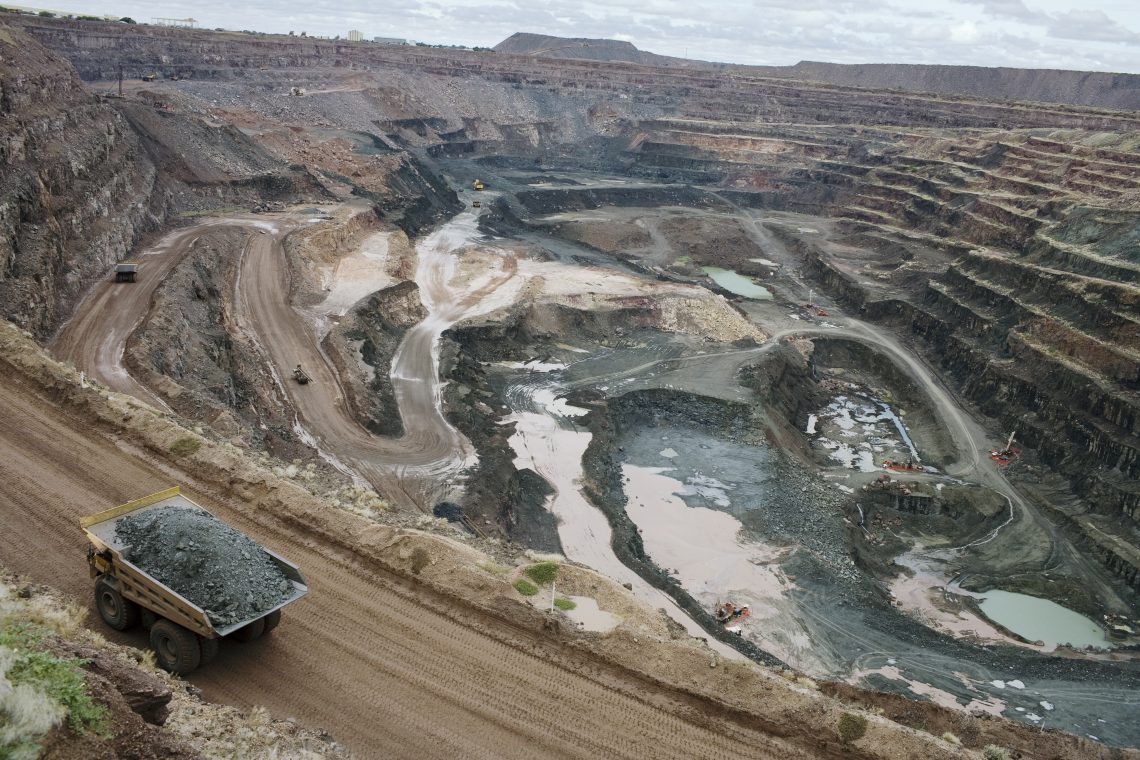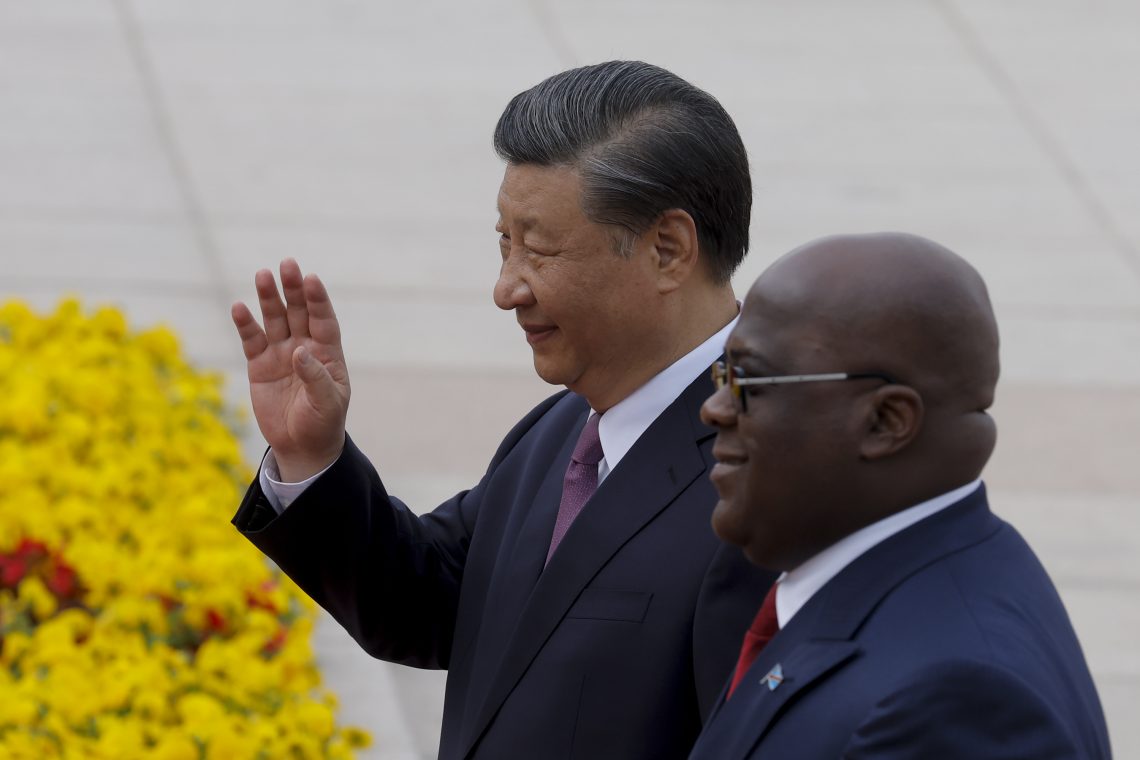Africa’s resource nationalism: Trend or transformation?
African nations are asserting control over resources, renegotiating deals and prioritizing local benefits amid global competition for its critical minerals.

In a nutshell
- Africa’s role in global mineral supply chains is growing
- Countries renegotiate resource deals to increase ownership and benefits
- Resource nationalism often escalates to full nationalization
- For comprehensive insights, tune into our AI-powered podcast here
In February, the government of Botswana and the South African-British mining giant De Beers signed a historic agreement that marked a new future for both sides. The deal had been in the making for six years. At one point, politicians, recognizing its significance to voters, made its conclusion a campaign promise. Yet, many in Botswana believed they were receiving less than they deserved in the mining deal that allowed De Beers to exploit some of the world’s richest diamond fields.
As part of the deal, Botswana, through its state-owned interests, will now retain 30 percent of all rough diamonds produced from a joint venture with De Beers. Previously, the country was entitled to 25 percent. In the next five years, Botswana’s share of the stones is expected to increase to 40 percent. The mining company will also invest an initial $75 million in a program called Diamonds for Development Fund. In return, De Beers will have its mining licenses extended to 2054, securing its right to extract resources for at least 29 years.
The Botswana agreement is one of the many deals being struck or discussed across Africa, a phenomenon often referred to as the “new resource nationalism.” In several countries, governments are seeking innovative ways to maximize gains from resource extraction. They have questioned long-standing deals and emphasized the need for renegotiation and a paradigm shift in new agreements.
Through resource nationalism, African economies aim to prioritize ownership of resources by increasing their interests and control, as well as the overall benefits to the state. Countries are employing various strategies such as value addition, tax reforms, local content requirements (domestic engagement), increased stakes and royalties, larger carried interests (profit sharing) and partnerships to achieve these objectives.
Facts & figures
Critical resources and sub-Saharan African countries with significant reserves
• Cobalt: Democratic Republic of the Congo (DRC), Madagascar
• Platinum: South Africa, Zimbabwe
• Diamonds: Botswana, DRC, South Africa
• Copper: DRC, Zambia
• Manganese: South Africa, Gabon
• Lithium: Zimbabwe, DRC
• Uranium: Namibia, Niger, South Africa, Botswana
• Bauxite: Guinea, Ghana
Global competition for Africa’s minerals
The new wave of resource nationalism has intensified at a time when established and emerging global powers are racing for Africa’s resources. Growing industries with an insatiable demand for raw materials and energy have fueled this scramble in recent decades. In June of this year, India dispatched a team of geologists to Zambia to explore copper and cobalt, two critical minerals essential for modern industry and the energy transition. Zambia agreed to allocate approximately 9,000 square kilometers to the Asian state for this purpose.
In the same month, the United States brokered a peace agreement between the Democratic Republic of the Congo (DRC) and Rwanda, which was necessary for a broader mineral deal with the DRC. Before Washington expressed interest in the Central African country and its resources, China had already signed a cobalt-for-infrastructure deal with Kinshasa in 2008.
Several firms from the United Arab Emirates reportedly invested hundreds of millions of dollars in ventures across Africa earlier this year. A single Emirati company invested $375 million in gold production in Ethiopia and Mali, acquiring a 50 percent stake in an existing mining operation in both countries. Another UAE firm, International Holding Company, invested $1.1 billion in copper mines in Zambia. These investments from the Gulf state were matched by equal funding for logistics infrastructure aimed at supporting resource exports.
Other Gulf nations, including Qatar, Saudi Arabia and Kuwait, have also shown interest in Africa’s mining sector. At a minimum, they aim to acquire stakes in existing mines. Over the past 15 years, countries such as Turkiye, Brazil and Israel have also increased their presence on the continent.
While Canada, China and Australia have solidified their positions in Africa with corporations that control major mining operations, the investment dynamics of emerging powers, along with the escalating rivalry between China and the U.S., are poised to transform the mining landscape over the next decade. The recent American investment in the Lobito Corridor, aimed at boosting the export of copper and cobalt, along with its growing interest in the DRC’s resources, highlights Washington’s renewed focus on Africa after ignoring the continent since the end of the Cold War.
The now-defunct Wagner Group, the Kremlin-backed private military company, had signed multiple security-for-resources agreements with several African countries. The Central African Republic and Mali were among those that entered such deals. While the focus appeared to be on security, these agreements revealed Russia’s approach to the resource scramble in Africa. Additionally, Moscow sent several delegations across the continent to explore resource extraction opportunities, particularly in the lead-up to the invasion of Ukraine.
African nations are keenly aware of the intense global competition and focus on their natural resources. In response, they have started taking proactive steps to capitalize on this situation and enhance their own advantages. With a young and increasingly well-informed population, questions regarding state interests and, in some cases, ownership of these resources, have dominated both traditional and social media discourse. Politicians and economic planners have made efforts to push for reforms and renegotiations aimed at maximizing these gains.
Shifts in resource control strategies
African countries have approached resource nationalism with different strategies. The goals, however, remain similar: to increase ownership over, and the overall benefits from, their natural resources. Some states have even requested renegotiation of agreements signed with other nations and multinational corporations.
In 2023, DRC President Felix Tshisekedi traveled to Beijing to renegotiate the cobalt-for-infrastructure deal. The government sought to increase its share in a cobalt and copper joint venture with Chinese companies from 32 percent to 70 percent. In January 2024, the DRC and Chinese investors reached an agreement under which China will invest $7 billion in infrastructure projects across the country, up from $3 billion in the previous deal. The 2025 Botswana-De Beers agreement also follows a similar pattern.

Other African countries have introduced tax and royalty reforms in their quest to boost revenue from mining and natural resource exploitation. The argument over the years – especially in sub-Saharan Africa – has been that the taxes and royalties paid by mining firms and international oil companies are insufficient to support the state’s expected revenues. As a result, some countries have focused on implementing tax reforms to achieve their goals of resource nationalism. Recently, Mali, Senegal and other economies have pursued this path.
A notable development is the decision by different economies to prioritize value addition on raw materials before exporting them. This has become a key requirement to support industrialization drives in African countries and, most importantly, to boost employment opportunities. By pursuing value addition, high unemployment can be mitigated. Additionally, the value of exports significantly increases if processing is done locally. The result could be stability for many struggling economies.
In 2022, Zimbabwe announced a ban on the export of raw lithium. In mid-2023, Namibia followed with its own ban on unprocessed critical minerals. In May this year, Gabon announced that it would no longer export manganese ore unless value was added. Other countries have made similar announcements.
Moreover, in August this year, Ghana made two major announcements that characterized its approach to embracing this new wave. First, the country’s Minerals Commission, responsible for regulating the mining sector, stated that it would reduce the maximum tenure for mining leases from 30 to 15 years. According to authorities, this would come as part of a new mining sector reform. Second, the country directed all gold traders to use mandatory official receipts issued by the newly established Gold Board. Created in 2025, the Gold Board regulates and participates in the purchase of gold produced by small-scale miners. The initiative aims to control the export and smuggling of gold in Ghana, Africa’s leading producer. It recorded $5 billion in gold exports within its first five months of operation.
Despite the more organized and legal methods that many countries have adopted in their efforts to maximize benefits, some approaches have raised questions about the likelihood of full nationalization of natural resource exploitation.
More from geopolitical and security advisor Fidel Amakye Owusu
- Biya to cling to power in Cameroon
- M23 rebels defy peace talks, expand control in DRC
- Senegal as a strategic player in the Sahel
Resource nationalism vs. nationalization
The nationalization of resources is an extreme form of resource nationalism. Nationalization was rampant in the decades following postcolonial African independence in the mid-20th century. Ideological persuasions and regime policies led to the nationalization of resource exploitation. Governments maintained absolute control over these resources either for centralized economic planning or as a means of entrenching themselves in power.
Over the years, many African economies shifted away from traditional practices as they subscribed to structural adjustment programs aligned with the economic recovery initiatives of the Bretton Woods institutions, namely the International Monetary Fund and the World Bank. This involved diversifying their economies and adopting the liberal economic principles advocated by these organizations. After the Cold War, most African countries opened their economies and sought to attract foreign investors.
In the current wave of resource nationalism, junta-led states in the Sahel have approached the issue more combatively, resulting in reports of dramatic disagreements between military governments and mining companies. In Mali, this even led to the incarceration of company executives. Authorities in Mali, Burkina Faso and Niger have taken over mines in ways that echo Cold War-era nationalization. This approach is partly due to the general anti-Western sentiment that followed international and regional responses to military coups. Additionally, after becoming more internationally isolated, these regimes need revenue to run state affairs and strengthen their economies.
Scenarios
Most likely: Africa retains a key role in international mineral supply chains
With the increasing demand for critical minerals and rare earths, Africa will continue to play a vital role in global supply chains. This means African countries will pass laws and policies to optimize their advantages from resource extraction.
As long as Russia and China support military regimes in the Sahel and other authoritarian governments across the continent, these administrations are likely to restrict the presence of Western companies and their mineral interests within their borders. Military governments are expected to adopt this combative approach to safeguard their power and maintain their rule.
Countries and companies seeking to secure mining leases in Africa will continue to offer attractive mineral and resource deals to remain competitive in their pursuit of the continent’s valuable resources.
Somewhat likely: New mineral discoveries diminish African market competitiveness
Major resource finds in industrialized nations, such as Japan, the U.S. and Australia, along with prospects for more discoveries in unexplored regions, could increase the global supply of some critical minerals. This surge in availability could reduce the competitiveness of Africa’s resource market.
Least likely: The Sahel’s shift to civil rule improves mining relations
Under this scenario, countries in the Sahel would transition to civilian rule in the medium term, leading to less combative relations with mining firms, especially those from Western countries. For now, that kind of change in the region seems extremely unlikely.
Contact us today for tailored geopolitical insights and industry-specific advisory services.








